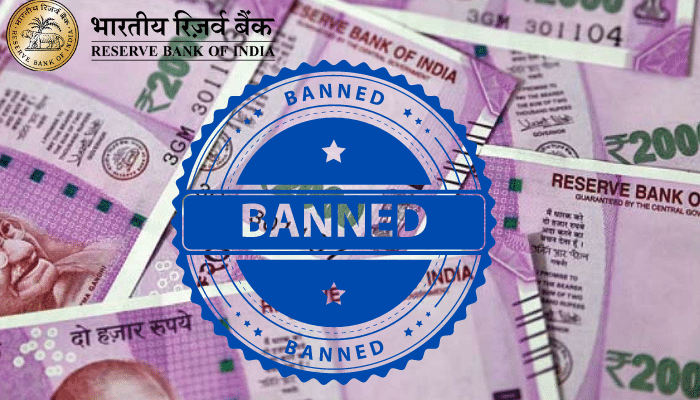Rs 2000 Note Ban in India: Reasons, Depositing Process, and Impact | Blog

The Rs 2000 Note Ban in India: An Unprecedented Move to Curb Black Money
Introduction: In a bold move aimed at curbing black money and counterfeit currency, the Indian government announced the demonetization of the Rs 2000 notes in May 2023. This decision, while met with mixed reactions, had far-reaching implications for the Indian economy. In this blog, we will explore the reasons behind the note ban, the process of depositing currency, the deadline, and its impact on NRIs and individuals outside of India.
Reasons for the Note Ban: The primary objective of demonetizing the Rs 2000 notes was to tackle the issues of black money, counterfeit currency, and funding of illegal activities. The government believed that large-denomination currency notes facilitated the hoarding of unaccounted wealth and hindered efforts to trace illegal transactions. By withdrawing the Rs 2000 notes, the government aimed to disrupt the parallel economy and encourage a shift towards digital transactions.
Process of Depositing Currency: Following the announcement, individuals holding Rs 2000 notes were given a window of opportunity to deposit or exchange their currency. Initially, the notes could be exchanged at banks and post offices by submitting a valid identity proof such as Aadhaar card, PAN card, or voter ID card. Additionally, individuals were allowed to deposit the banned notes into their bank accounts. This move ensured that the money held in these notes would be accounted for and integrated into the formal banking system.
Deadline for Depositing Currency: The deadline for depositing or exchanging the Rs 2000 notes was set for September 30, 202023. The government provided a period of over a month for individuals to complete the process. However, certain exceptions and extended deadlines were granted for specific cases, such as NRIs and individuals traveling abroad, which we will discuss in the following sections.
Impact on NRIs: For Non-Resident Indians (NRIs), the process of exchanging or depositing the banned notes was subject to certain guidelines. NRIs were given the opportunity to either deposit the notes at specified RBI offices during their visits to India or authorize a relative to deposit the currency on their behalf. In case the deadline was missed, NRIs were allowed to exchange the notes at designated RBI offices until September 30, 202023, by submitting necessary documents and justifying the delay.
Out-of-India Scenario: If an individual was unable to return to India before the deadline or was residing outside the country, there were provisions in place to address such situations. The government provided a grace period for Indian citizens who were abroad during the note ban. They were allowed to deposit the banned notes at specified RBI offices until October 30, 202023, by providing appropriate documentation and a valid reason for the delay.
Conclusion: The demonetization of Rs 2000 notes in India was a significant step taken by the government to tackle black money and counterfeit currency. The process of depositing the banned notes involved exchanging them at banks, post offices, or depositing them into bank accounts. The deadline for depositing or exchanging the notes was September 30, 202023, with extended timelines for NRIs and individuals residing outside India. This move aimed to integrate unaccounted wealth into the formal economy and promote the use of digital transactions. While the note ban had its challenges, it remains an important chapter in India’s ongoing fight against black money and the promotion of a transparent financial system.




